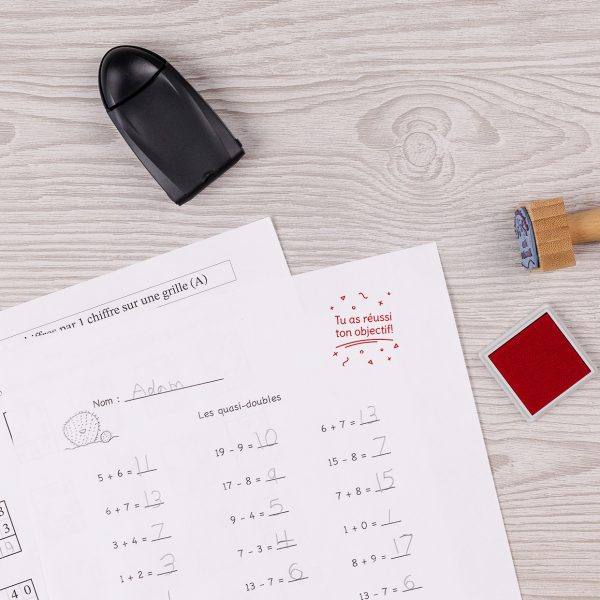Ever wondered how to get your kids to manage their time effectively? We’ve all been there, watching the minutes tick by as assignments remain untouched and chores are left undone. The ability to manage time well is a skill that’s crucial not only for adults but for kids, too.
In this text, we’ll explore the importance of time management for toddlers and provide actionable tips to help them master this essential life skill. We’ll delve into strategies that teach them understanding of time, then make balanced schedule fun and effective, thereby helping set your child up for success.
What is time management for toddlers?
Time management skills are necessary for your children, as they play a significant role in their personal development and long-term and future success. By learning to manage their time effectively, your children gain valuable life skills that have far-reaching benefits. For toddlers, time management lays the groundwork for developing important skills such as responsibility, organization, and the ability to balance play, rest, and learning. It serves as a tool for reducing stress within the home, paving the way for a harmonious family dynamic.
Why teaching time management matters?
We cannot overemphasize the significance of teaching time management from a tender age. When we start early, we sow vital seeds that empower our children with life skills. It shapes them into responsible, self-reliant beings ready to strut confidently into more structured environments, school days included. Undeniably, orchestrating time management early is about better preparing our kids for tomorrow, molding them into adept citizens for the world ahead
Teaching toddlers time management early offers many benefits:
- Fosters Responsibility and Independence: Simple tasks like tidying toys or washing hands build a sense of accountability and self-reliance.
- Builds Organizational Skills: Activities like cleaning up after play teach toddlers how to organize their surroundings, a critical life skill.
- Promotes Balanced Routines: A mix of play, rest, and learning ensures their energy is managed effectively, reducing overstimulation.
- Reduces Family Stress: Predictable routines create harmony at home, making transitions smoother and less stressful for everyone.
Key principles of time Management for toddlers
Creating a strong foundation for effective time management strategies among toddlers involves several core principles. It begins with teaching easy-to-grasp time concepts, embedding predictable routines, and using graphical supports.
- Introduce Basic Time Concepts: Help toddlers understand “now” vs. “later” and gain a sense of time by connecting tasks to daily activities like meals or naps. By relating these antonyms to daily activities, such as regular meal times and sleep, toddlers start to make connections between actions and timeframes understanding the passage of time.
- Create Predictable Routines: Regular schedules for meals, naps, and bedtime provide structure and security. Predictable routines are key not only for time management but also for reducing stress in kids and promoting a calm family environment.
- Use Visual Aids: Time management tools like picture charts, timers, or a magnetic visual schedule make routines tangible and engaging for toddlers. We recommend the Minimo magnetic visual time tool, which allows the current task to be easily displayed, providing the child with a clear and understandable visual cue. Additionally, you could create a DIY analog clock. You can customize it according to your child’s age and needs, using dry-erase markers for flexibility.
Setting up a toddler-friendly routine
- Establish Daily Routines: Consistent morning and bedtime rituals help toddlers anticipate their day. They supply toddlers with a sense of the day’s flow. Introducing specific time blocks for mealtimes, playtime, and rest periods affords them the flexibility to adapt while still providing structure.
- Balance Play and Rest: Alternate between active play and downtime to maintain energy levels and prevent overstimulation. It’s about creating a stable pendulum that swings between exertion and rest, so teaching toddlers to self-regulate their energy levels.
- Break Down Tasks: Simplify large tasks into small, manageable steps, like picking up one toy at a time. By dissecting it into manageable segments, such as picking up one toy at a time, we’re effectively teaching them task completion skills. Plus, it makes the activity less daunting for the young ones, securing their interest and encouraging their involvement.
Tools and techniques for teaching time management to toddlers
Having established the importance of time management skills for children, we now turn our lens towards specific tools and techniques designed to help the development of these skills in toddlers.
- Reward Systems: Positive reinforcement, like sticker charts or fun games, motivates toddlers to follow routines. To make this process more engaging, incorporate their favorite activities into the reward system; for example, completing a simple task like helping to tidy up can earn them extra time for a fun game of “Toy Treasure Hunt,” where they search for hidden toys around the house.
- Interactive Games. Time management game like ‘Race Against the Clock’ or ‘Chore Bingo‘ infuses a level of excitement while teaching toddlers to accomplish tasks within a specific timeframe.
- Books and Apps. App like *Brili Routines* or *Time Timer* and stories about routines introduce time management in a playful way. Books like ‘How Do Dinosaur Say Goodnight’ by Jane Yolan can instill a sense of routine while strengthening time management foundations.
Challenges and solutions in teaching time management techniques to toddlers
Let’s investigate into the common challenges that arise when teaching toddlers about time management, and provide comprehensive solutions to overcome them.
- Short Attention Spans: Keep tasks short and engaging with visual aids or reward systems. For instance, using visually appealing charts or boards can provide a valuable aid, grabbing their interest and guiding them through different tasks. Also, a simple reward system can amplify their motivation.
- Balancing Structure and Flexibility: Combine predictable routines with free play to encourage adaptability without overwhelming toddlers. For instance, building in regular breaks for unstructured play during the day can keep toddlers motivated. It can also reduce resistance to structured tasks.
The benefits of time management for toddlers
By teaching time management early, toddlers gain skills that prepare them for school and beyond. From fostering independence and sense of responsibility to improving focus and strategic thinking, these habits lay a foundation for success in every stage of life.
Here are 3 benefits of teaching time management at early age:
- Encourages Self-Reliance and Confidence
- Prepares Toddlers for Elementary School and Beyond
- Lays a Foundation for Lifelong Skills
Conclusion
We’ve taken a deep investigate into time management for toddlers, stressing its importance in laying the foundation for lifelong skills. By introducing concepts of time and establishing routines, we’re setting our little ones up for success.
Challenges will arise, such as short attention spans and resistance to routines, but using stress management techniques for kids can help maintain their motivation and focus. Remember, we’re not just teaching them to follow a schedule. We’re fostering self-reliance, independence, and strategic thinking. We’re preparing them for school and beyond. So let’s empower our kids with effective time management skills, and watch them navigate the world with confidence.
Here are other articles that might interest you:







